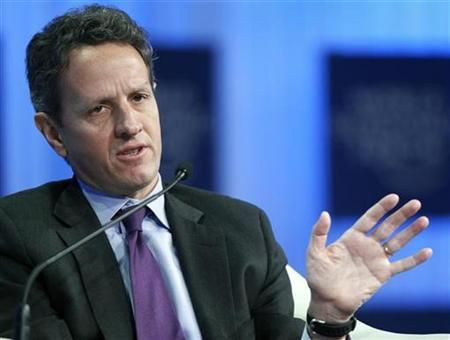Why Debt Ceiling “Lehman 2008” Fears Are Overblown

Treasury Secretary Tim Geithner said the failure to raise the debt ceiling will bear “catastrophic consequences.”
He warns of the following chain of events, beginning with…
- “Concerns about the solvency of the investment funds and financial institutions that hold Treasury securities in their portfolios,” leading to…
- “A run on money market mutual funds and the broader financial system -- similar to what happened in the wake of the collapse of Lehman Brothers,” which would cause…
- “A panic that threatens the health of our entire global economy and the jobs of millions of Americans.”
Federal Reserve Chairman Ben Bernanke was equally gloomy. He described an outcome in which “the financial system would be again destabilized, which we saw in Lehman, which would have extremely dire consequences for the rest of the economy.”
President Barack Obama was perhaps the most pessimistic of the bunch. He said the failure to raise the debt ceiling could spark “a worse recession than we already had, a worse financial crisis than we had already.”
All of this is unfounded fear-mongering, however.
First, the Treasury has a whole bag of tricks to generate extra cash in the short-term. It already suspended the State and Local Government Series Treasury Securities and stopped payments to two federal employee benefit funds.
In addition, it could shrink the Federal Reserve’s supplementary financing program, issue more cash management bills, raid the exchange stabilization fund, sell its TARP investments more quickly, and sell its holdings of mortgage-backed securities from Fannie and Freddie, according to Reuters. It can also sell its stock of gold, which is trading at record prices.
Second, Republican critics point out that the US government can just pay its interest on the debt, which US tax revenues can more than cover (as long as the government controls day-to-day spending).
Third, even if the US government fails to pay the interest on its debt on time, it wouldn’t be the end of the world, according to hedge fund legend Stanley Druckenmiller.
Druckenmiller, in a Wall Street Journal article, said if that were to happen, it would qualify as a technical default, which is “horrible” but not “catastrophic.”
He said investors know that they’ll only have to wait a short while to receive their interest payments. Meanwhile, the bigger danger is if the US government doesn’t cut spending and accumulates too much debt in the long run, he said.
© Copyright IBTimes 2025. All rights reserved.





















